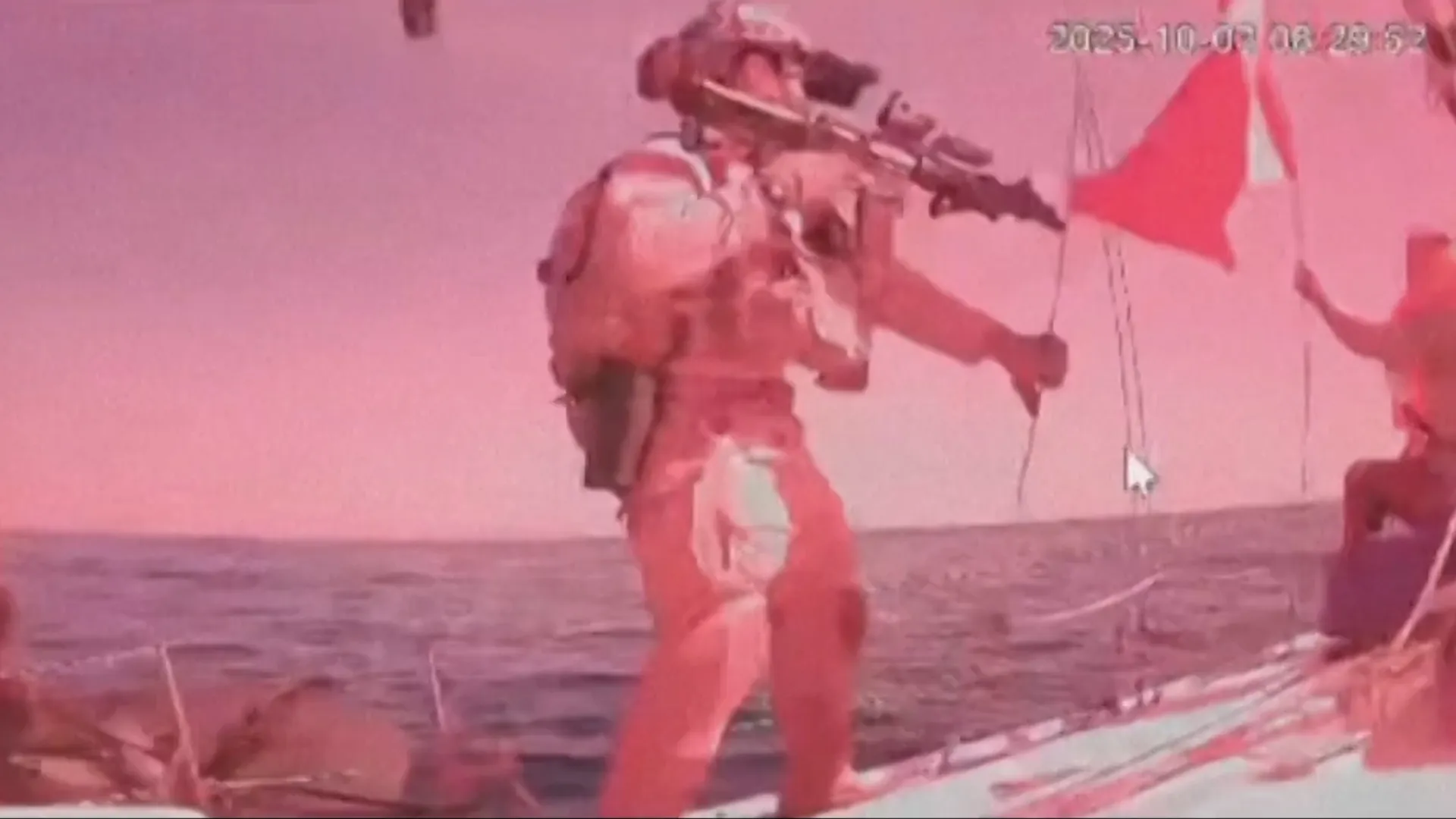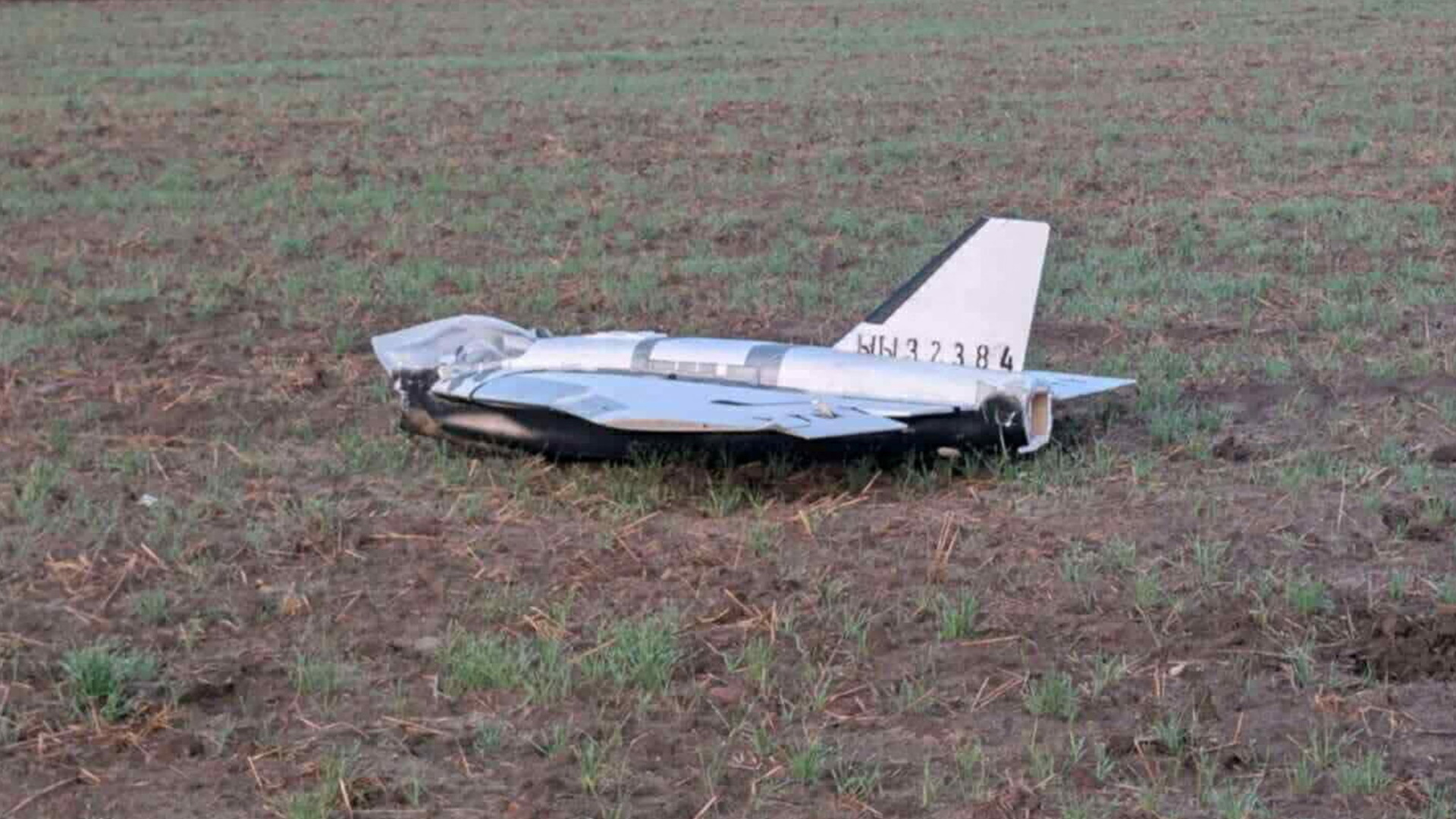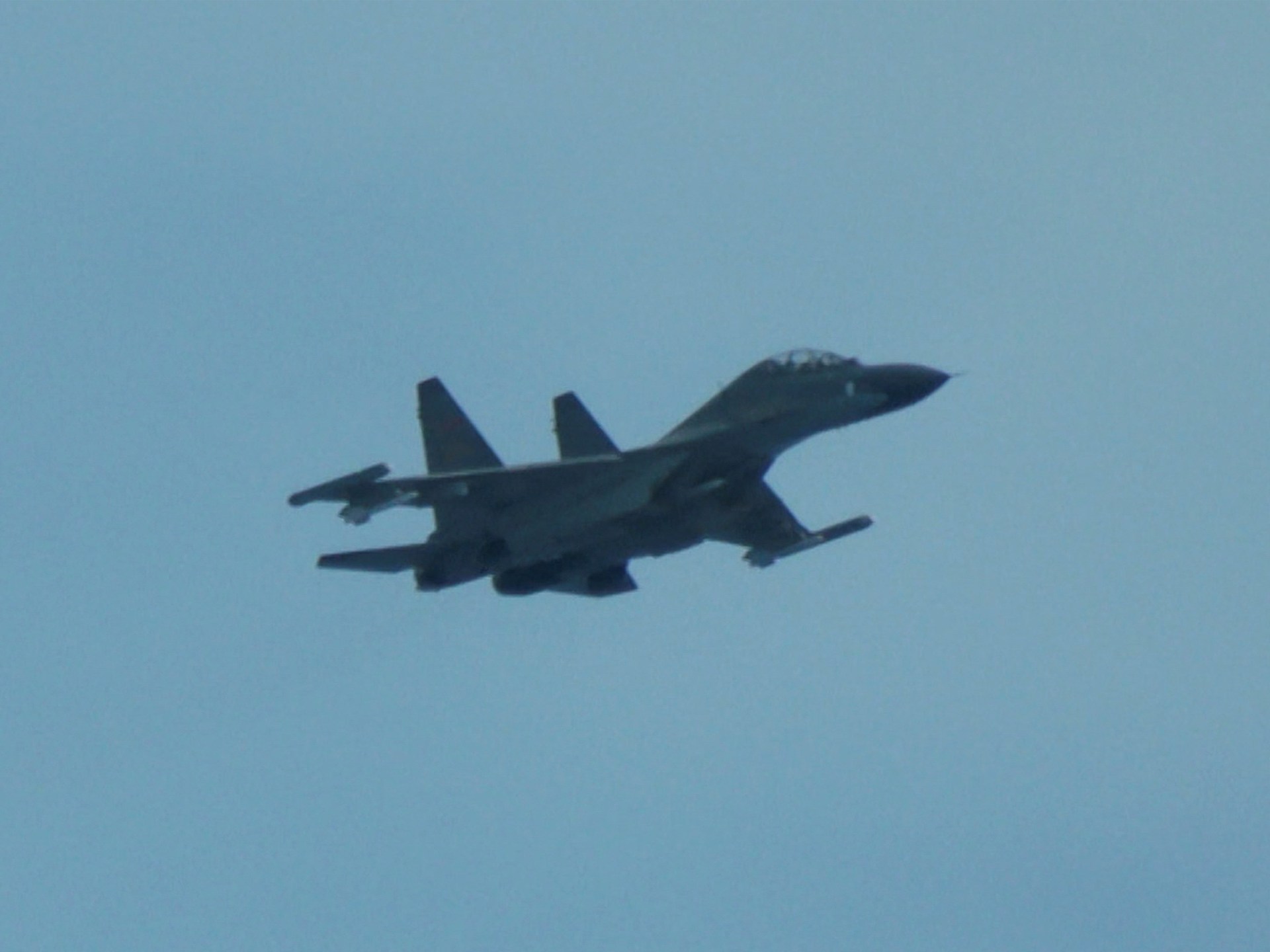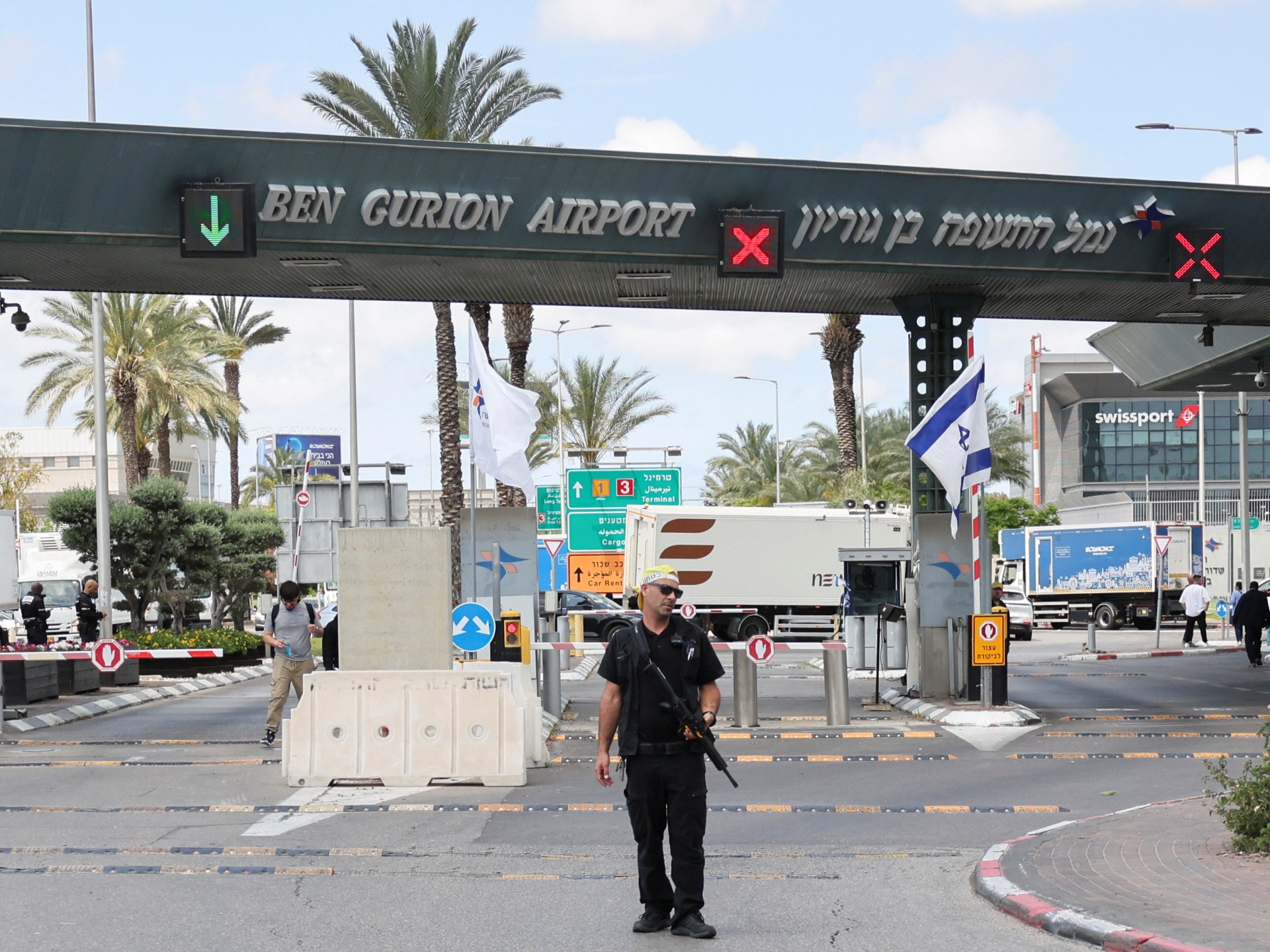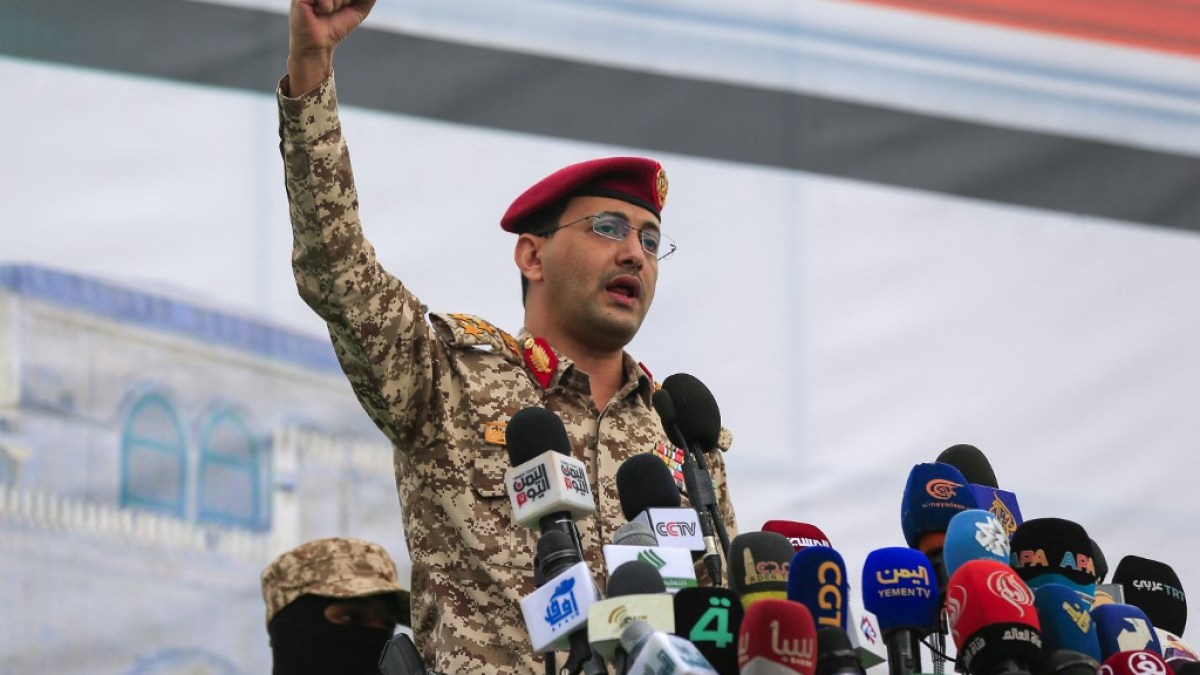Israel has intercepted the Global Sumud Flotilla, which had been attempting to break Israel’s blockade of Gaza, and had garnered global attention as one of the biggest naval aid missions to the Palestinian enclave.
The Global Sumud Flotilla – carrying more than 40 civilian boats and about 500 activists – was boarded by Israeli forces late on Wednesday, with activists on board detained and taken to Israel.
Recommended Stories
list of 3 itemsend of list
Israel had previously said that it would do whatever it takes to stop the Gaza-bound flotilla, claiming the volunteers were trying to “breach a lawful naval blockade” – a claim that goes against international law.
Israel has blockaded Gaza to varying degrees since Hamas took control of the Strip in 2007. Gaza’s residents have largely been trapped in the territory since then, with the entry of food, goods and aid strictly controlled by Israel.
Here is what to know.
What happened to the flotilla on Wednesday?
Israel intercepted boats from the flotilla carrying humanitarian aid, according to statements by the flotilla organisers.
Organisers reported that naval forces boarded vessels about 70 nautical miles (130km) offshore Gaza, cutting communications and jamming signals as the flotilla approached the blockaded enclave.
Earlier in the day, activists described shadowy encounters with unlit boats and drones tailing the convoy, heightening tensions on board.
“On Wednesday … at around 8:30 pm (17:30 GMT), multiple vessels of Global Sumud Flotilla – notably Alma, Surius, Adara – were illegally intercepted and boarded by Israeli Occupation Forces in international waters,” a flotilla statement said.
“Prior to illegally boarding the ships, it appears as though the Israeli naval vessels intentionally damaged ship communications, in an attempt to block distress signals and stop the livestream of their illegal boat boarding.”
Despite carrying only a symbolic amount of humanitarian aid, the flotilla had pressed forward with its mission to establish a maritime corridor into Gaza, where nearly two years of Israel’s war have left the population facing an acute humanitarian crisis.

How did Israel respond?
Israel’s Ministry of Foreign Affairs released a video showing a woman in military uniform speaking by phone, introducing herself as a representative of the Israeli navy.
In the call, she warns the flotilla that it is nearing a restricted, blockaded area and explains that any aid for Gaza must be sent “through the established channels”.
Israel’s ambassador to the United Nations, Danny Danon, also said that activists on board the Gaza aid flotilla will be deported once the Jewish holiday of Yom Kippur concludes on Thursday.
“According to Israeli media, six boats have been intercepted so far, among them the vessel Alma. Reports suggest more interceptions are expected,” Al Jazeera’s Nida Ibrahim, reporting from Doha, said.
“Israeli soldiers have boarded the ships and detained many of the activists on board. Those detained would normally go through a legal process, but Israel is currently under near-total shutdown because of the Yom Kippur holiday,” she added.
“That means courts and prisons are not functioning, creating a limbo for the activists if they are detained.”
Since 2009, Israel has formally enforced a naval blockade it says is necessary to prevent weapons from being smuggled in. Authorities have also alleged that some flotilla organisers are connected to Hamas, a claim the activists strongly reject as unfounded.
Has this happened before?
Vessels and convoys have attempted to break the blockade of Gaza since 2010.
A few key examples include:
2010 – The Mavi Marmara incident: The most infamous case, when Israeli commandos boarded the Turkish ship Mavi Marmara, part of the Gaza Freedom Flotilla. Clashes broke out, and 10 activists were killed as a result, drawing global condemnation and straining Israel–Turkiye relations.
Israel apologised for “operational mistakes” in the raid in 2013. A compensation deal is still being negotiated between the two countries. Israeli soldiers and officials who took part in the attack are being tried in absentia in Turkiye for war crimes.
2011–2018 – Smaller flotillas stopped: Several subsequent flotillas, including vessels in 2011, 2015, and 2018. Israel typically diverted the ships to Ashdod port, detained activists, and confiscated cargo. In 2018, activists were arrested, and some reported they were tasered and beaten.
2024 – Flotilla attempts: Activist groups continued organising flotillas, but Israel either prevented them from leaving ports abroad or intercepted them before they could approach Gaza.
2025 – Several flotilla missions set sail to challenge Israel’s naval blockade.
One such mission in June involved the ship Madleen, which departed from Catania, Sicily, with food, medical supplies, baby formula, and other essential goods. It also carried activists, including Greta Thunberg.
In the early hours of June 9, Israeli naval forces intercepted and boarded the Madleen in international waters, using a chemical irritant spray, and then seized the vessel, detaining the 12 people on board. The activists were deported after being processed in Israel.
What else do we know about the current flotilla?
The Global Sumud Flotilla set sail in late August 2025, departing from ports in Spain and Italy before stopping in Greece and Tunisia as it made its way across the Mediterranean.
The mission began with more than 50 vessels representing at least 44 countries, carrying hundreds of international volunteers, activists, and lawmakers. Among them are 24 Americans, including several military veterans, according to the organisers.
On board were symbolic yet significant amounts of humanitarian cargo, including food, medical supplies, and other essentials for Gaza’s population.
Activists reported several hostile encounters at sea, including suspected drone attacks near Malta and Crete, which left some vessels damaged and forced to withdraw. By the time the flotilla neared the eastern Mediterranean, 44 ships remained in the convoy.
International attention grew as the flotilla pressed on. Spain and Italy both deployed naval vessels to monitor its progress and offer assistance if required, while governments across Europe and beyond urged restraint from all parties.
